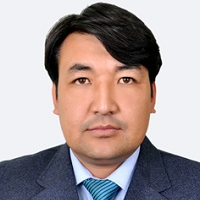The impact of structuralism on the historiography of the Kabul History Association
The structuralism approach gained acceptance as an intellectual-philosophical method after World War II and influenced many scientific fields. The golden age of structuralism is the 60s and 70s of the 20th century, and one of its examples is the works of Fernando Braudel. This article, with analytical-descriptive method and based on data extracted from Ariana magazine (the most important publication of the Kabul History Association) and the most important historical works of prominent figures of this association, tries to explain the influence of structuralist thought in the historiography of the said association between 1321- 1357 Sh. which it was active and left a wide legacy with this approach. The findings of the research show that the structures of nationalism with the components of archaism, descent, language and geography have had an impact on their historiography. This influence, along with creating opportunities such as analytical history, paying attention to historical geography, giving importance to cultural elements such as linguistics, ancient works, customs, legends and stories; It also created extensive challenges in the history writing tradition of Afghanistan. The diverse and contradictory presuppositions of the mentioned association in the historiography of Afghanistan created a deep transformation in the historiography tradition of this country. The aforementioned association tried to explain the historical past of this country with the presuppositions governing contemporary Afghanistan as an independent political unit with its current borders; Therefore, the mental presuppositions of the historians of the History Association have imposed themselves on the historical facts of the past
-
Reflecting the role of peasants in the thought of the left current of Afghanistan (1991-1961)
*
History of Villages and Rural Settlements in Iran and Islam Journal,



